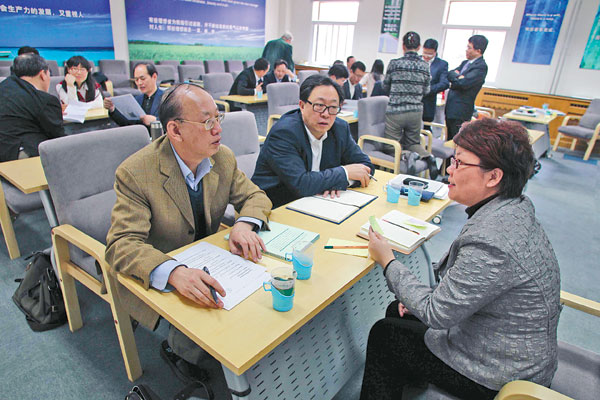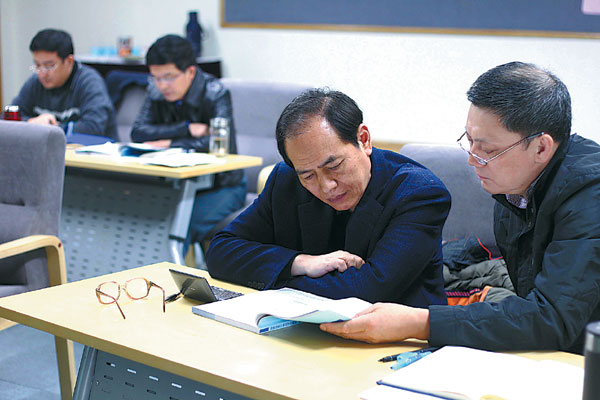Language course makes impression
Updated: 2012-04-17 07:58
By Cui Jia (China Daily)
|
||||||||
Extra hours of study
The official study day involves a minimum of 12 hours exposure to the language, but the students put in several extra hours of study, too. All of them use English names and conscientiously address each other in English during classes. They also use the language to discuss current affairs while watching the TV news in English during meal breaks. As a break from the theoretical aspects of the course, the students also sing traditional English songs, especially London's Burning in four-part harmony.
"I've been teaching English for more than 20 years now and I've never before seen a group of students take their studies so seriously. I really didn't expect that, and I am actually quite moved," said Wang Xiaomei, who teaches English at Beijing Foreign Studies University. "They are also very competitive."
"Learning English is not just about the language. It actually opens a window to the world," said Tan Wangeng, Party chief of China Southern Airlines, the country's largest carrier by fleet numbers. When we spoke, he preferred to be called 'Wogan' (a phonetic transliteration of his Chinese name) and was adamant that he should be interviewed in English.
"With better English, I could monitor what my competitors are doing myself, so we won't be left behind. It's so different from asking someone else to do it for you," he said. "Many Chinese officials still haven't realized the importance of learning English. It gives you a new way of thinking and makes you more open."
Dong Kaijun, president of the Qinghai Higher People's Court, agreed: "Learning English might not have a direct influence on my work in the law, but it gives me the ability to adopt new things and ideas, which is exactly what Chinese officials need."
In addition to the purely language-based parts of the course, the officials also attend lectures designed to show them how to cope with the cultural differences between East and West. The students showed great interest when discussing concepts such as guan xi (relationships), ling dao (leader) and mian zi (face).
When John G. Blair, who teaches a course on Western civilization with Chinese comparisons at the Beijing University of Foreign Studies, said Chinese people tend to skirt around an issue instead of getting straight to the point, Yu Jianfeng, vice-president of China Power Investment Corp raised his hand to disagree. "The Chinese are not always like that and it actually depends on the circumstances," he told his teacher in English. "Westerners like to stereotype the Chinese. They need to learn more about Chinese culture."

 Relief reaches isolated village
Relief reaches isolated village
 Rainfall poses new threats to quake-hit region
Rainfall poses new threats to quake-hit region
 Funerals begin for Boston bombing victims
Funerals begin for Boston bombing victims
 Quake takeaway from China's Air Force
Quake takeaway from China's Air Force
 Obama celebrates young inventors at science fair
Obama celebrates young inventors at science fair
 Earth Day marked around the world
Earth Day marked around the world
 Volunteer team helping students find sense of normalcy
Volunteer team helping students find sense of normalcy
 Ethnic groups quick to join rescue efforts
Ethnic groups quick to join rescue efforts
Most Viewed
Editor's Picks

|

|

|

|

|

|
Today's Top News
Health new priority for quake zone
Xi meets US top military officer
Japan's boats driven out of Diaoyu
China mulls online shopping legislation
Bird flu death toll rises to 22
Putin appoints new ambassador to China
Japanese ships blocked from Diaoyu Islands
Inspired by Guan, more Chinese pick up golf
US Weekly

|

|








